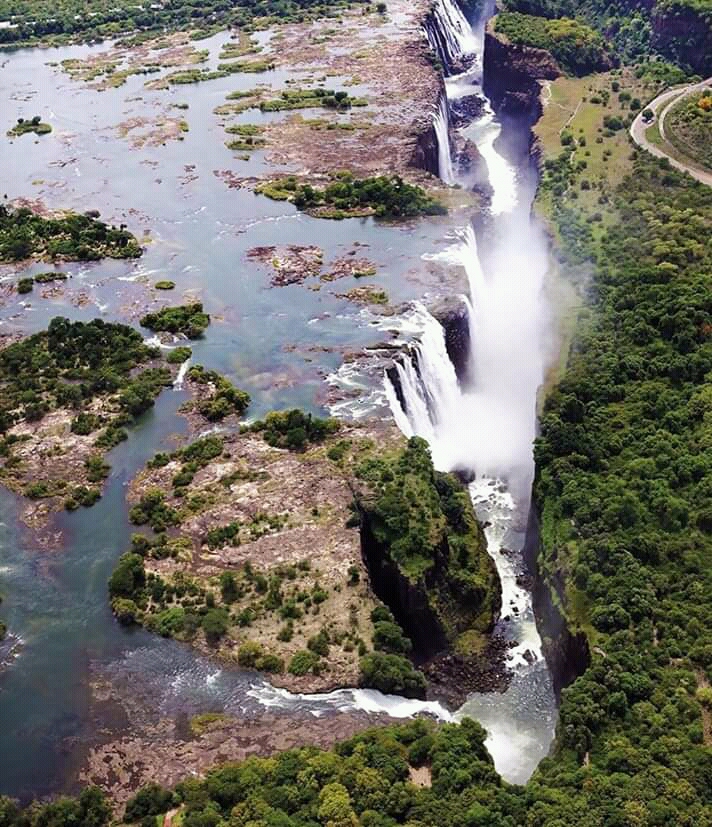By Anyway Yotamu
COVID-19 has had a devastating impact on Africa’s growing travel and tourism sectors.
From the time the first case of COVID-19 was discovered in China in December 2019, the consequences have cut across all the economic sectors globally.
One of the worst affected sectors was tourism, which was grounded globally amid fears of a possible increase in infections because of the level of mobility in tourism.
The closure of the global travel trade put thousands of jobs under siege, cut on incomes for the tourism players, painting a gloomy picture on the sector.
With no timeframe as to how long the pandemic was going to last, countries could not plan for the future, and Zimbabwe was not spared.
As the world slowly begins to open up, preparations have begun in earnest to get back the sector on track to growth.
Last week, the Government reopened the entire tourism sector after a long hiatus, which adversely affected the operations of most players. Many players in tourism may struggle to regain their economic stamina.
For Africa, the loss is unimaginable, considering tourism’s contribution to the continent’s gross domestic product.
According to the World Travel and Tourism Council, the travel and tourism industry contributes over US$450 billion to Africa’s economy combined, representing 7.1 percent of GDP and supporting millions of jobs across the continent.
The council also noted that 80 percent of the players on the continent are mainly small and medium enterprises, who may not have strong financial back up to revive their business after an economic crisis.
It, therefore, comes as a relief that the tourism industry can now be fully operational, with systems in place to manage and prevent the spread of the virus.
In such unprecedented times, tourism players need to come up with new standards for both local and international tourists to ensure that the reopening does not result in a sudden spike of new infections.
A paradigm shift is now needed when conducting business as the world slowly adapts to the new normal brought about by the pandemic.
Having done fairly well in managing COVID-19 infections as a country, tourism players have a huge role to play to ensure that there are no new infections as a result of increased mobility in the industry.
By its nature, the tourism industry is the interface between the country and the globe. As such, any future interactions between the two have to be well managed by stakeholders so that they can fully market the country to the world.
Coordinated communication from organisation like the Zimbabwe Tourism Authority will assist in bolstering confidence among international tourists who may want to visit but are skeptical about safety and health measures that the country has in place to manage the pandemic.
There is, therefore, a need for proper safety requirements at all tourism facilities to complement existing World Health Organisation protocols as well as measures put in place by the Government.
With the horrific consequences of the pandemic still fresh in people’s minds, tourists will place a greater focus on their health and will naturally avoid crowded places.
Unlike previously where tourism players would revel at high turnouts, and at times put up makeshift arrangements to accommodate extra guests, they now need to adopt new standards that ensure the safety of the minimum number of guests they would be allowed to host at any given time.
This calls for training staff, availing information on COVID-19 and regular campaigns to instil confidence and rebuild trust among tourists who desire to travel, but are worried about their safety.
Stakeholders in the tourism industry have a huge responsibility to restore confidence and stimulate demand through the use of apps to attract local and international visitors.
Since the borders of most countries are still closed to prevent further spread of the disease, domestic tourism is the low hanging fruit that stakeholders can pick to jump-start their business.
That calls for the introduction of the package for the local discerning tourist who might be eager to visit the local to attractions, but cannot afford the pricey packages which are often pegged using rates for international travellers.
Over the years, there has been a public outcry over the pricing model of the tourism industry, with locals calling for differentiated pricing and bundling so that they can pay less than international tourists.
However, the pricing issue has not been addressed. Tourism players argue that differentiated pricing is not possible if they are to remain viable.
Many are hoping that the reopening of the industry presents stakeholders with an opportunity to come up with packages to attract domestic tourists, which should be maintained even after international tourists start to trickle in.
In other countries such as Kenya and South Africa, domestic tourism has proved to be a key driver of the sector, a model that Zimbabwe should also adopt.
It is not going to be an easy ride for the local tourism players who may find that they might need to aggressively market their destinations and remove the lack of confidence and confusion currently prevailing globally after more than 800 000 people lost their lives to COVID-19.
Suffice to say, the pandemic has been a learning curve for all businesses that they might need to plan for the unexpected.
Going forward, Zimbabwe and the continent at large also needs to prioritise cooperation with neighbouring destinations towards a regional value proposition and a seamless visitor experience through the implementation of the SADC tourism strategy.
Launched in 1998, the SADC protocol on the development of tourism is aimed at promoting balanced progress of the tourism sector that optimises the use of the region’s resources.
Neighbouring countries such as Africa, Zimbabwe, Malawi and Zambia can collectively market their destinations with better results instead of offering individual packages.






